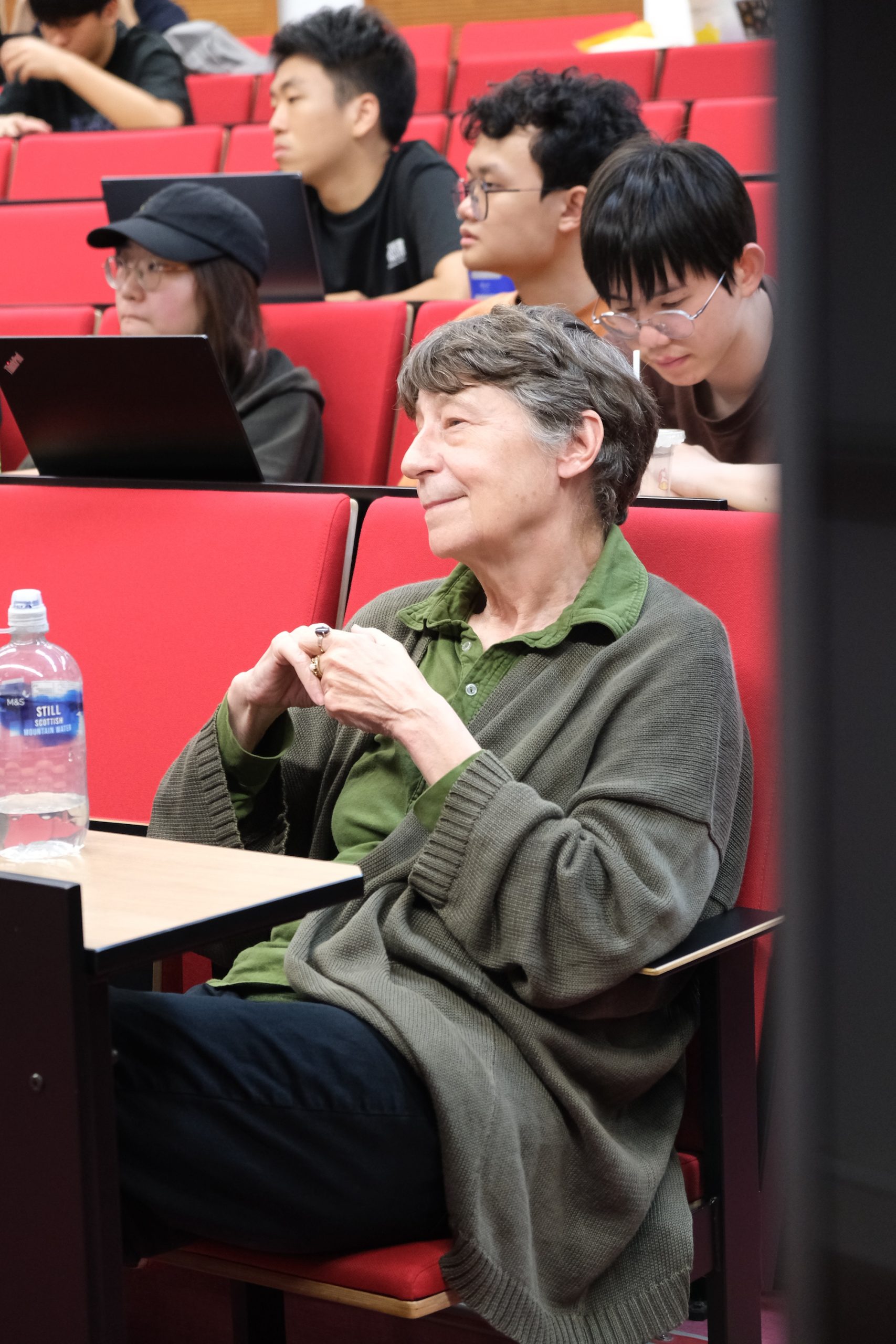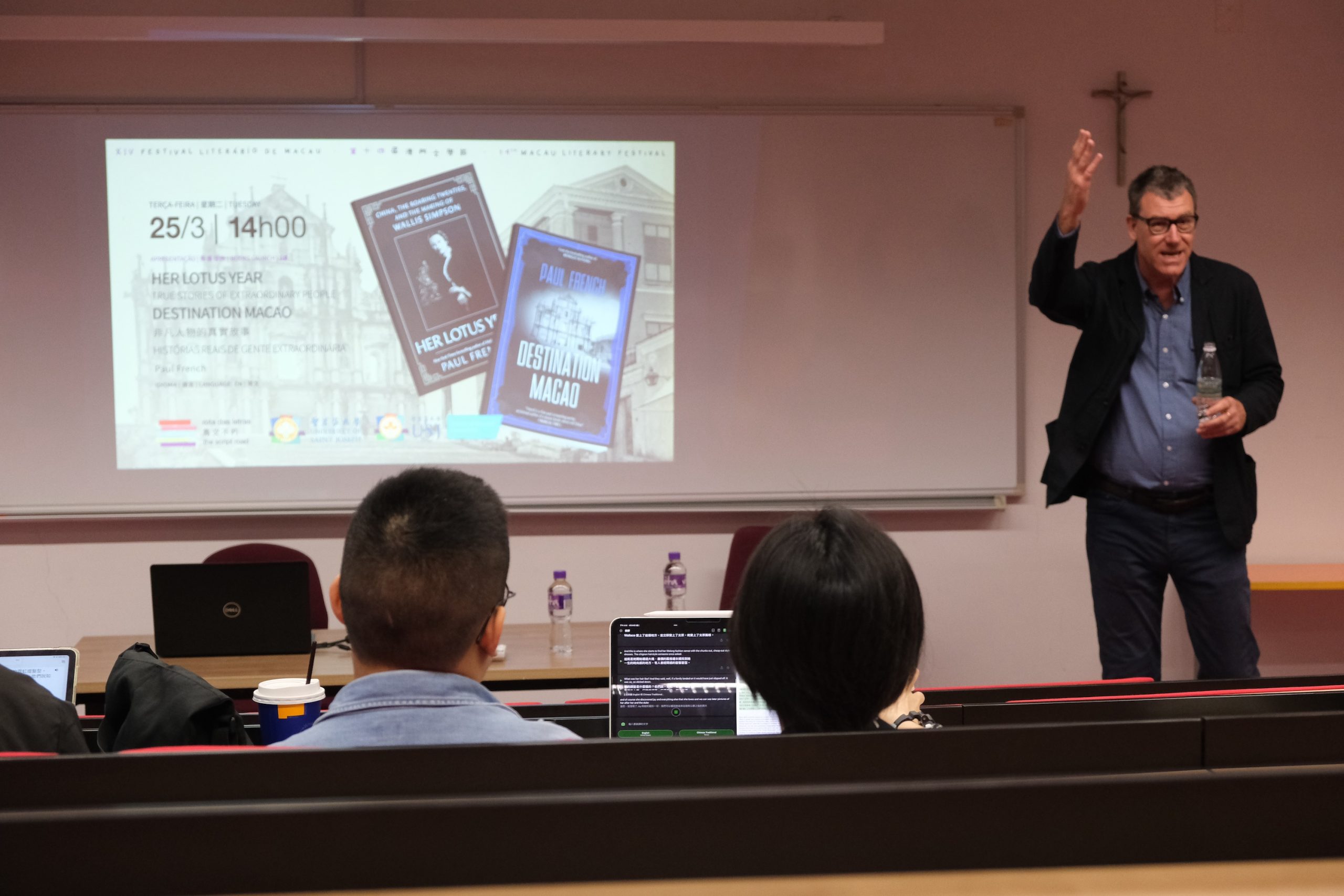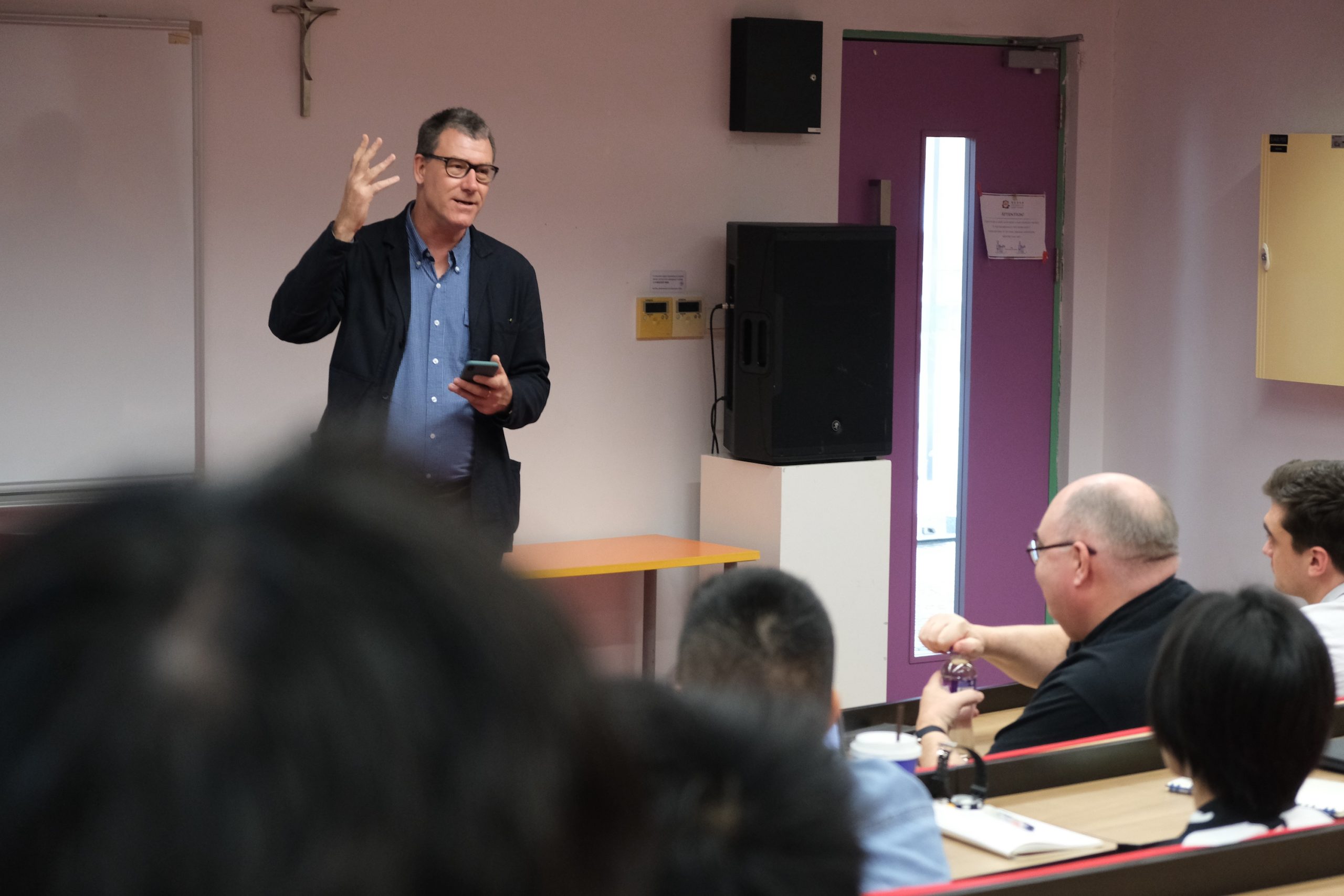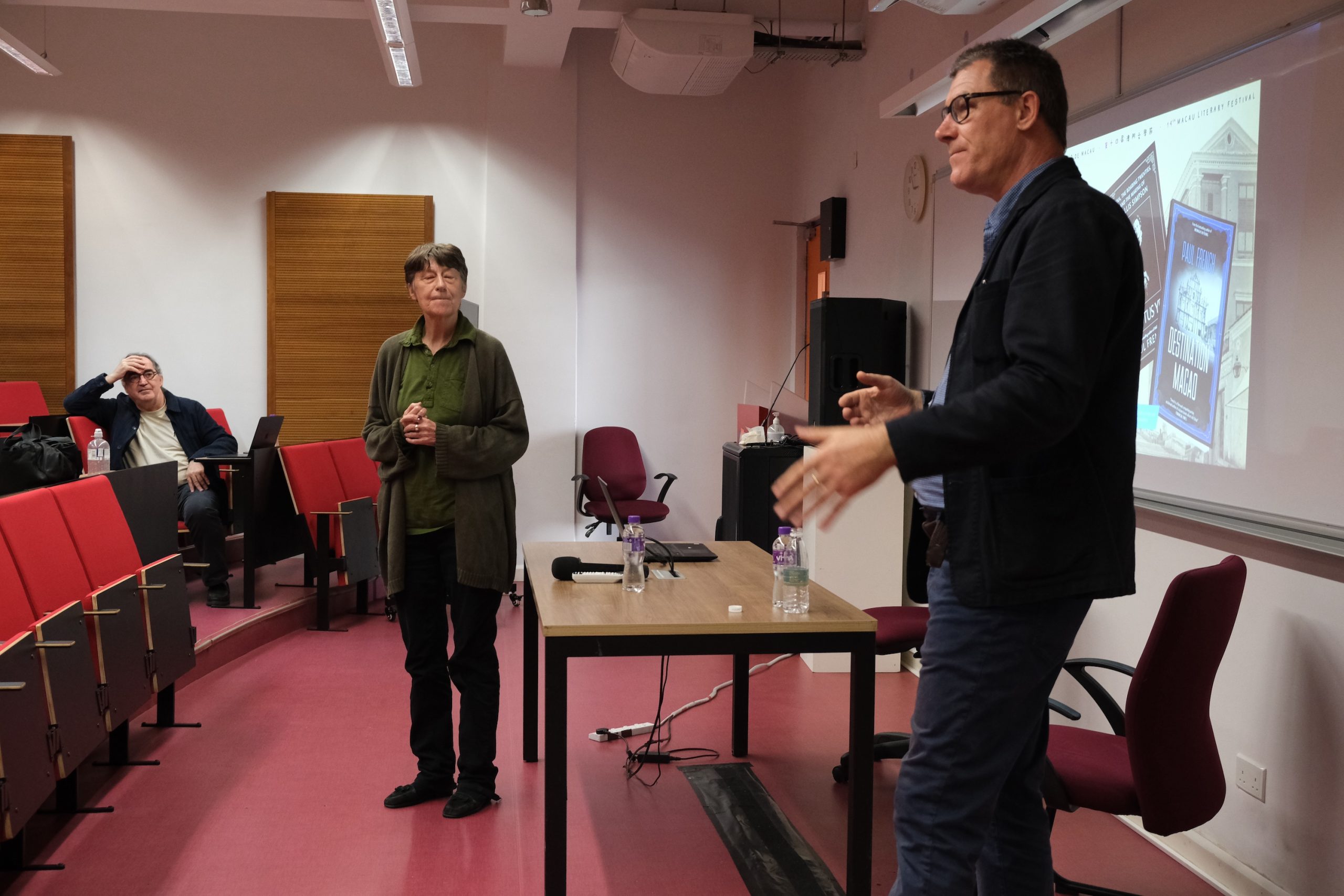USJ holds Public Lecture by Internationally renowned British writer and commentator Paul French
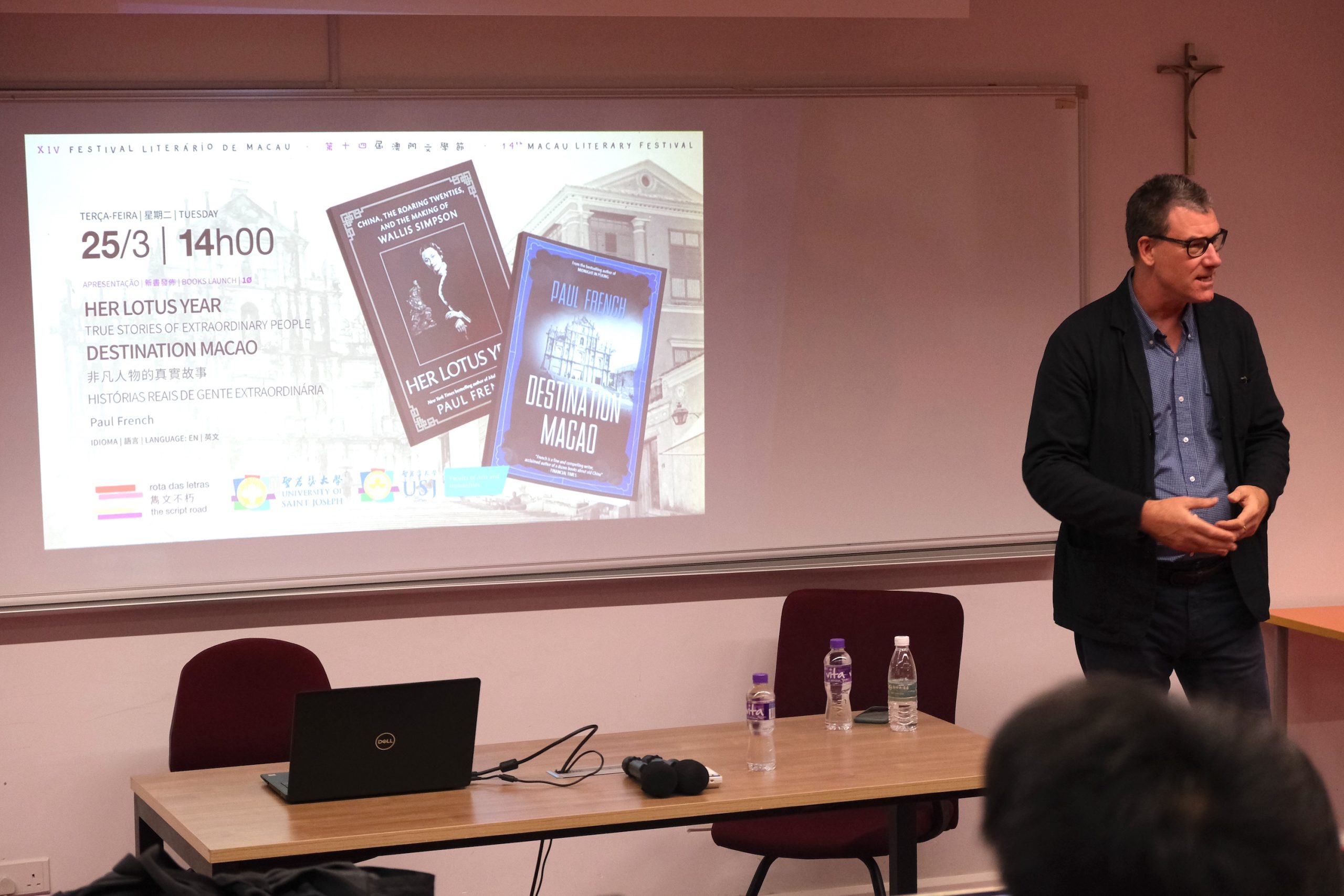
USJ holds Public Lecture by Internationally renowned British writer and commentator Paul French
07
Apr
07/04/2025
Speaking at USJ, Mr. French—who came to Macau to speak at this year’s Literary Festival—focused upon two of his most recent publications: Her Lotus Year (2024), and Destination Macao.
Paul French, an internationally renowned British writer and commentator who has written numerous books on China, especially in terms of encounters between China and the West, delivered a special lecture at the University of Saint Joseph (USJ) on Tuesday, 25 March 2025.
Born and currently based in London, Paul French lived and worked in Shanghai for many years. After a career as a widely published analyst and commentator on China he is now a full-time author, focusing on China and Asia. His true crime book Midnight in Peking was a New York Times Bestseller, a BBC Radio 4 Book of the Week, a Mystery Writers’ of America Edgar award winner for Best Fact Crime, and a Crime Writers’ Association (UK) Dagger award for non-fiction. His Kirkus-starred book City of Devils: A Shanghai Noir focuses on the dancehalls, casinos and cabarets of wartime Shanghai. Both Midnight in Peking and City of Devils are being adapted for film and television.
Speaking at USJ, Mr. French—who came to Macau to speak at this year’s Literary Festival—focused upon two of his most recent publications: Her Lotus Year (2024), a revealing biography of the year Wallis Spencer, later the Duchess of Windsor spent in China in the mid-; and Destination Macao, a collection of true stories of fascinating people who lived in or visited Macao in the 19th and 20th centuries. In different ways, each volume is controversial.
French’s stimulating and wideranging lecture sparked many questions and extensive discussion, led by Rector Stephen Morgan, a fellow historian who is familiar with French’s earlier Macau-themed book Strangers on the Praia (2021), which tells the stories of some of those Jewish refugees who moved on from wartime Shanghai to seek a possible route to freedom via the Portuguese colony of Macao.
Her Lotus Year is an untold story in the colorful life of a woman too often maligned by history. Before she was the Duchess of Windsor, Bessie Wallis Warfield was Mrs. Wallis Spencer, wife of Earl “Win” Spencer, a US Navy aviator. From humble beginnings in Baltimore, she rose to marry a man who gave up his throne for her. But what made Wallis Spencer, Navy Wife, the woman who could become the Duchess of Windsor? The answers, according to French, lie in her one-year sojourn in China.
In her memoirs, Wallis described her time in China as her “Lotus Year,” referring to Homer’s Lotus Eaters, a group living in a state of dreamy forgetfulness, never to return home. Though faced with challenges, Wallis came to appreciate traditional Chinese aesthetics. China molded her in terms of her style and provided her with friendships that lasted a lifetime. But that “Lotus Year” would also later be used to damn her in the eyes of the British Establishment. The British government’s supposed “China Dossier” of Wallis’s rumored amorous and immoral activities in the Far East was a damning concoction, portraying her as sordid, debauched, influenced by foreign agents, and unfit to marry a king. Instead, French reveals Wallis Warfield Spencer as a woman of tremendous courage who may have acted as a courier for the US government, undertaking dangerous undercover diplomatic missions in a China torn by civil war.
In Destination Macao, the third in his acclaimed Destination series, Paul French journeys to the former Portuguese enclave of Macao, for him as much a place of the imagination as of reality. Constantly portrayed as the louche, sinful sister of Hong Kong, it was also a key trading post and early melting pot on the South China Sea.
From the Macao of artists George Chinnery and George Smirnoff, the writers Deolinda da Conceição and Maurice Dekobra, to the pulp fiction fantasies and cinematic fever dreams of Josef von Sternberg and Jean Delannoy; from those like Dr Pedro Lobo and Ian Fleming who came to Macao to chase gold, as well as those who sought refuge from war and the combatants who sought secret passage through ‘neutral’ Macao; from the earliest days of the China coast trade and its assorted cast of innkeepers and adventurers to the bizarre tales the changing times in the colony created. Did Japan really try to buy Macao in 1934? Who really sailed with Macao’s pirate queen Lai Choi San? Who were the Portuguese rebels who sought to declare Macao a republic in the 1920s?
